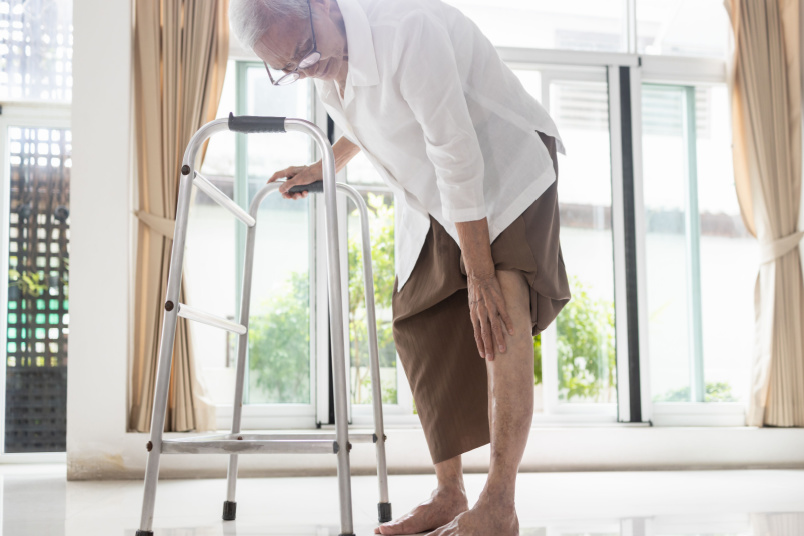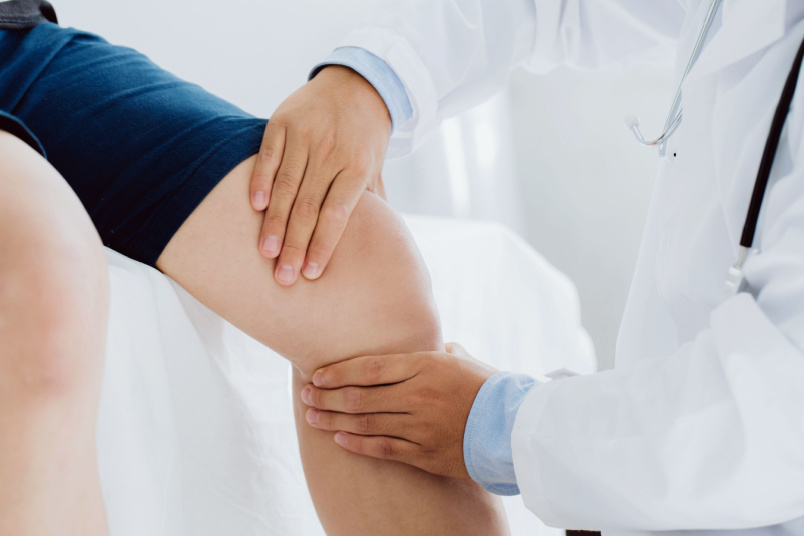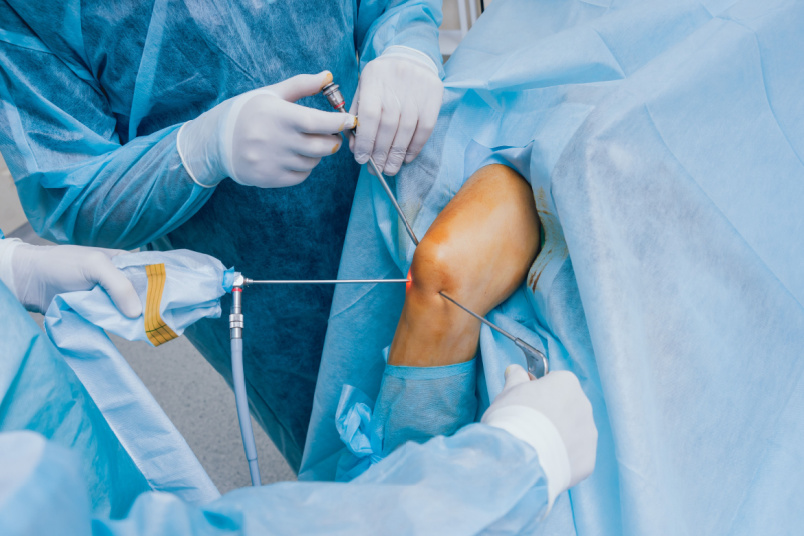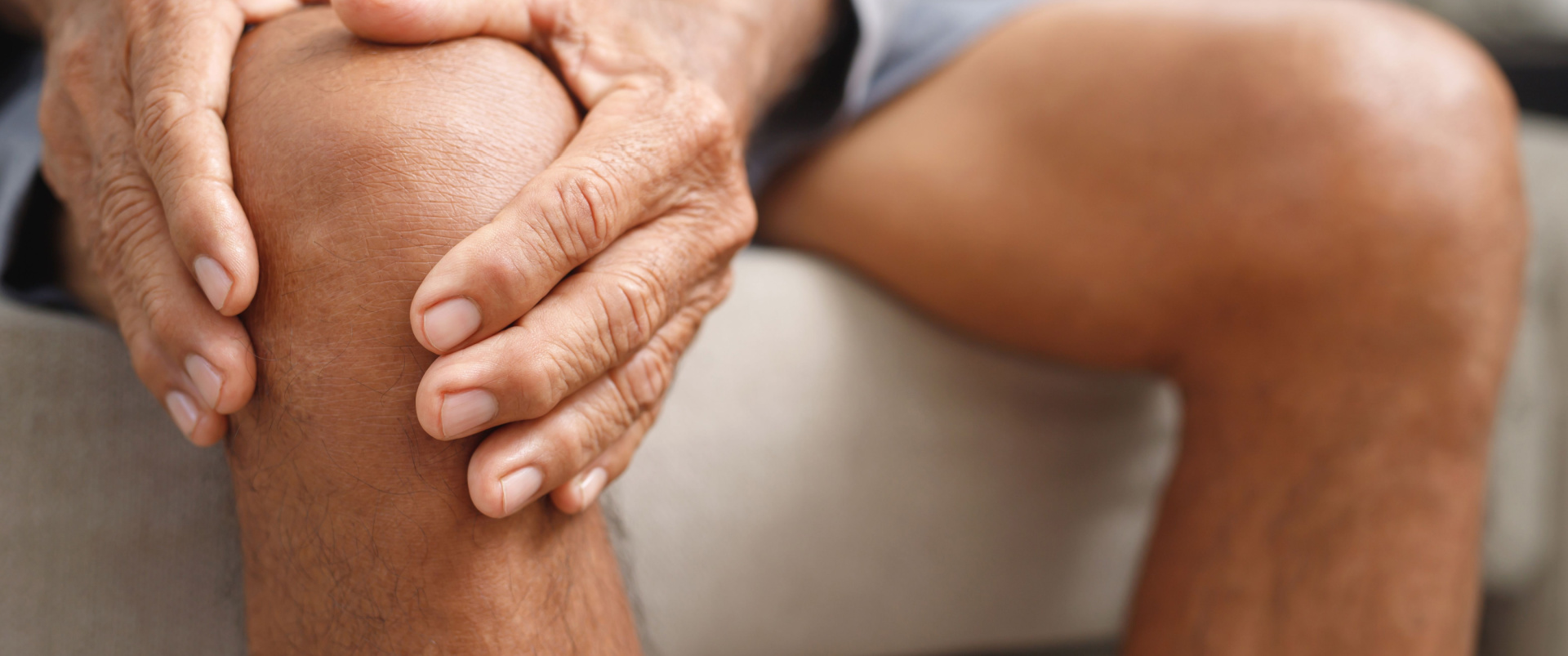Arthritis pain in the knee is a debilitating condition characterized by inflammation of the joint, causing stiffness, swelling, and discomfort. It predominantly affects the elderly, though it can also affect younger individuals due to various factors like injury or genetics.
The most common types of arthritis include osteoarthritis and rheumatoid arthritis; each has unique challenges in managing pain and preserving joint function. This condition significantly impacts daily life, limiting mobility and often requiring a multifaceted approach to treatment, ranging from medication and physical therapy to lifestyle modifications.
It is essential to understand the complexities of knee arthritis for effective pain management and improved quality of life.
What are the causes of Knee Arthritis?

Arthritis in the knee typically results from the breakdown of joint cartilage, leading to pain and inflammation. Factors such as aging, genetic predisposition, joint injuries, and obesity can contribute to its development. As cartilage deteriorates, bones may rub against each other, causing pain, swelling, and stiffness. Inflammatory processes like those seen in rheumatoid arthritis, can also affect the knee joint. Seeking medical advice is crucial for accurate diagnosis and appropriate management of arthritis-related knee pain.
What are the symptoms of Knee Arthritis?

The following are the various symptoms associated with the knee arthritis:
Pain and Stiffness: Arthritis in the knee often manifests as persistent pain, commonly described as a dull ache or sharp discomfort. Stiffness is another prevalent symptom, especially after periods of inactivity or upon waking up.
Swelling: Inflammation is a hallmark of arthritis, leading to noticeable swelling around the knee joint. This may cause a feeling of heaviness and reduced flexibility.
Reduced Range of Motion: As arthritis progresses, individuals may experience limitations in their ability to fully bend or straighten the knee. This reduced range of motion can impact daily activities.
Warmth and Redness: The affected knee might feel warmer to touch than usual, and the skin around the joint could appear red. These signs indicate increased blood flow and inflammation in the area.
Crepitus: Arthritic knees may produce a grinding or grating sensation during movement. This noise, known as crepitus, results from the roughening of cartilage surfaces within the joint.
Weakness: Muscular weakness in the thigh and calf muscles may develop due to the pain and reduced usage of the affected knee.
Instability: Arthritis can lead to a sense of instability in the knee, making individuals more prone to episodes of giving way or feeling unsteady. People with arthritis may experience difficulty walking, climbing stairs, or even performing routine activities.
Morning Stiffness: Many individuals with knee arthritis experience increased stiffness and discomfort in the morning, lasting for around 30 minutes or more. This morning stiffness can be a distinctive feature of arthritis.

Identifying the type of arthritis (osteoarthritis, rheumatoid arthritis, etc.) is crucial for tailoring an appropriate treatment plan. The diagnosis of arthritis includes:
Medical History: Healthcare providers will begin by gathering information about your medical history, including symptoms, duration, and any relevant factors such as injuries or family history of arthritis.
Physical Examination: A thorough examination of the knee joint will be conducted, assessing for signs of swelling, warmth, tenderness, and range of motion. Joint deformities or changes in alignment may also be noted.
Imaging Tests:
· X-rays: These can reveal joint damage, narrowing of joint spaces, and the presence of bone spurs.
· Magnetic Resonance Imaging (MRI): Provides detailed images of soft tissues such as cartilage, ligaments, and tendons and helps to assess the extent of damage.
Blood Tests:
· Rheumatoid Factor (RF) and Anti-Cyclic Citrullinated Peptide (anti-CCP) Antibody Tests: These blood tests help diagnose rheumatoid arthritis.
· C-reactive protein (CRP) and Erythrocyte Sedimentation Rate (ESR): Elevated levels of these parameters indicate inflammation in the body.
Joint Aspiration (Arthrocentesis): In some cases, a small sample of synovial fluid from the knee joint may be collected and analyzed. This can help determine if inflammation is due to infection or another cause.
Musculoskeletal ultrasound: It can provide real-time images of the joint, aiding in the assessment of inflammation, fluid accumulation, and structural abnormalities.
Arthroscopy: In certain situations, a minimally invasive procedure called arthroscopy may be recommended. It involves visualizing the joint directly by inserting a small camera into it and assessing the condition of the cartilage and other structures.
Other Specialized Tests: Depending on the suspected type of arthritis, additional tests such as bone scans or specific antibody tests may be conducted.
What are the treatment options for Knee Arthritis?

The following are the various treatment options for knee arthritis:
A. Conservative Treatments
Medications: Pain relievers and anti-inflammatory drugs can help to reduce the symptoms.
Physical Therapy: Targeted exercises strengthen muscles, improve flexibility, and alleviate stress on the knee joint.
Weight Management: Maintaining a healthy weight can reduce the load on the knee joints thereby, minimizing pain.
Assistive Devices: Canes, braces, or orthotics may provide support and reduce pressure on affected knees.
B. Interventional Treatments
Corticosteroid Injections: They may provide temporary relief by reducing inflammation.
Hyaluronic Acid Injections: Lubricate the joint, easing pain, and improving mobility.
C. Surgical Options
Arthroscopy: Minimally invasive procedure to address certain joint issues, such as removing loose cartilage or repairing damaged tissue.
Joint Replacement (Arthroplasty): In severe cases, particularly with significant joint damage, total or partial knee replacement with artificial components may be considered.
D. Lifestyle Modifications
Exercise: Low-impact activities such as swimming and cycling can help maintain joint function.
Balanced Diet: Incorporating anti-inflammatory foods and supplements like omega-3 fatty acids may offer relief.
Heat and Cold Therapy: Alternating between hot and cold packs can reduce pain and swelling.
Smoking Cessation: Smoking has been linked to increased arthritis severity; so quitting may positively impact symptoms.
To conclude, treatment plans are often personalized based on the type and severity of arthritis, as well as individual health factors. Consultation with a healthcare professional, typically a rheumatologist or orthopaedic specialist, is crucial for developing an effective and tailored approach to managing knee arthritis.
KM NU Hospitals in Ambur, India, is renowned for its excellence in treating arthritis pain in the knee and performing knee surgeries. With a dedicated team of orthopaedic specialists, state-of-the-art facilities, and a patient-centric approach, this hospital prioritizes effective pain management and advanced surgical interventions. KM Hospitals provide advanced and compassionate care for arthritis knee treatment, ensuring comprehensive solutions for patients' well-being and recovery.
Author: Dr. Tahir Ahmed
References:
1. Arthritis of the Knee. Cleveland Clinic.
https://my.clevelandclinic.org/health/diseases/21978-arthritis-of-the-knee.
2. Arthritis of the Knee. American Academy of Orthopaedic Surgeons.
https://orthoinfo.aaos.org/en/diseases--conditions/arthritis-of-the-knee/.
3. Knee Arthritis. Hospital for Special Surgery.
https://www.hss.edu/condition-list_knee-arthritis.
4. Knee Pain. Mayo Clinic.
https://www.mayoclinic.org/diseases-conditions/knee-pain/symptoms-causes/syc-20350849.
Author: Dr. Tahir Ahmed
